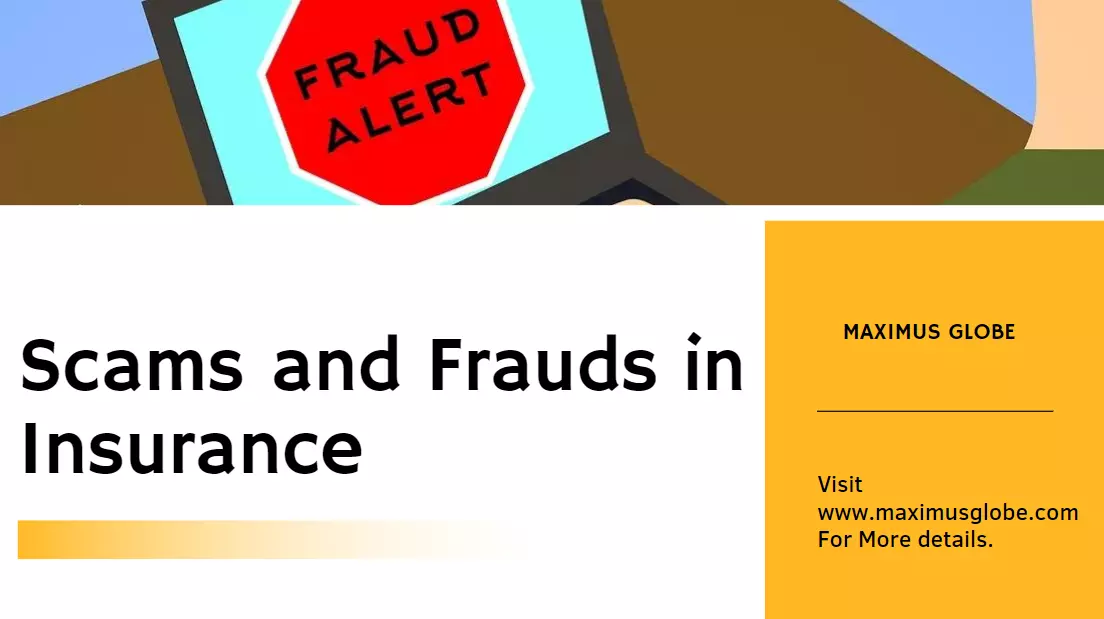
As we all know, insurance is an essential part of an individual’s life network. Its importance remains the same in all fields of life. Education, material assets, health, death– all of such events and occasions involve insurance.
However, as big as this multi-billion dollar business is, Scams and Frauds in Insurance do occur since the beginning. You cannot spot scammers and fraudsters by looking at their faces or appearances. They won’t have a gold tooth or some suspicious long coat. They look like you and stay among you. It is hard to tell which one would scam your hard-earned money.
The Claimant or the Insurer commonly does the scams in insurances.
What is the Claimant in Insurance?
The Claimant is the one who misrepresents facts and carries out fraud in insurance. It can be in the shape of submitting claims of injuries or damage that never occurred. Often accidents are staged just to make the claims look as real as possible without getting caught.
Scams by Insurers:
Other times, the insurer commits an act of defrauding when he/she knowingly denies some benefit that is due.
Insurance fraud covers any action whose aim is to deceive the insurance process and can be committed against an insurance company. It can happen by a policyholder or a third-party claimant.
Insurance fraud statistics include insurance agent fraud as well. In this context, fraud or deception is not limited to criminal activity. It also consists of incomplete disclosure as well as malicious misrepresentations and omissions for financial gain and interest.
Workers’ compensation, healthcare, and automotive insurance proved to be areas most affected by insurance fraud.
Nature of Scams and Frauds in Insurance
The nature of fraud is tricky, and its system is becoming more complex daily. It is difficult to detect insurance fraud and measure its precise financial impact.
Fraud occurs at many points throughout insurance transactions. Applicants for policyholders, insurance, third-party claimants, professionals who provide services and equipment to claimants – all of them can be a part of such Scams and Frauds in Insurance.
Plots of insurance fraud cases usually include more than the following elements:
- Staging accidents
- Padding insurance claims or twisting a genuine claim
- Claiming for damage or injuries that never happened
- Stating wrong facts on an insurance application
The Reason for Scams and Frauds
Public attitudes have sometimes hindered insurers in their fight against fraud. Research suggests that some portion of insurance fraud consumers commit is retaliation or revenge for a personal service exchange that they think is unfair. People may retaliate to “get their money’s worth” or “get a return.”. Insurance fraud is usually undetectable, unlike visible crimes such as robbery or murder.
The number of insurance fraud cases detected is much lower than the number of acts committed. The best thing that is actually possible is to provide an estimate for the losses that insurers suffer due to insurance fraud.
What You Can Do to Avoid a Scam?
In all areas of fraudulence, divulging personal information is key. It can lead to harmful marketing campaigns targeting consumers to sell false health coverage or unnecessary medical equipment. It is important to know who is asking for information and to avoid such scams as much as possible.
Fraudulent claims total at least $80 billion per year in the United States. 95% of insurance companies use anti-fraud technology. But as said earlier, the nature of the insurance business is such that it cannot be made foolproof from scams and fraud in insurance. Fraudsters make false claims and tamper with evidence. It is thus difficult to detect fraud while it happens. It is only after a thorough investigation by the insurance company that a conclusion can be drawn based on the facts and evidence available. The inquiry can be false if planned out well by the Claimant, which happens in most cases and claims made.
Conclusion
Having an insurance plan for all financial aspects has become our society’s need. It is also a field of great deceit and scam. One needs to walk on this path carefully. You have to save yourself from falling prey to the very desire of human beings to attain money easily, even if that means becoming a fraud in the process.



